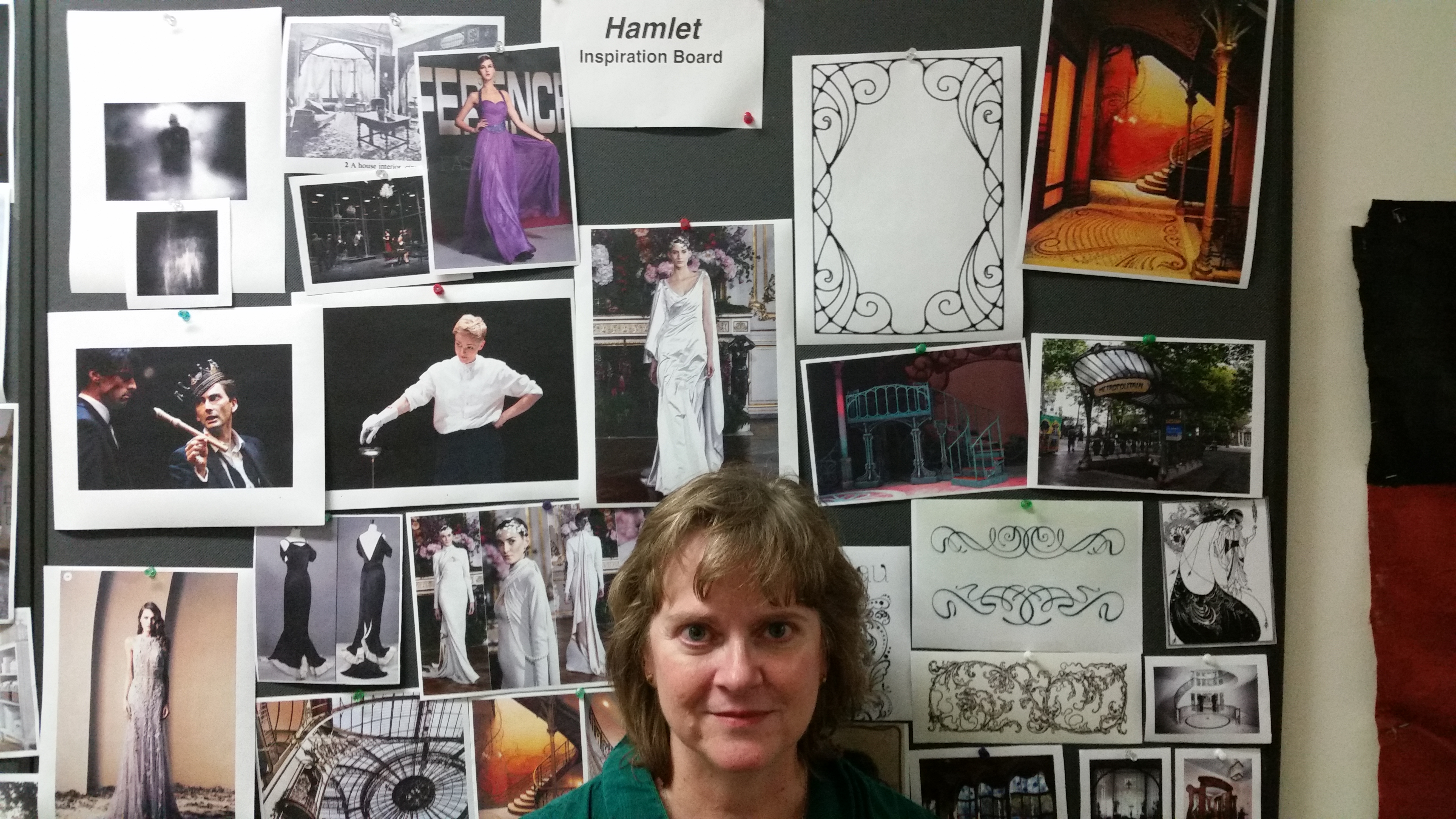
Theater professor Dana Smith will open auditions Nov. 18 for next semester’s genderbent production of Hamlet.
Casting and directing a gender modified production has not been done before at Truman State. Smith says she is committed to an open mind when it comes to casting, but has an idea of what roles she’d like to see women play, including Hamlet. She says she wants to cast a female Hamlet because there is a lack of gender parody — modifying gender roles — and two-thirds of professional actors are women, but only one-third of lead roles are female characters.
Smith also says Hamlet has been played by more than 250 women, most recently by Maxine Peake in Manchester, England. She says Hamlet is easier than other characters to cast as a woman because of his high femininity.
“Hamlet is a role for women as well,” Smith says.
Staying in Focus
Smith says she is trying to steer away from infusing an agenda into the play and just wants to put on a good show. She says her goal is for the play to be accessible. Some of her efforts, she says, are cutting the showtime from over three hours to about 2.5 hours, as well as omitting or changing some of the more difficult references and language.
Smith says she has had a bit of difficulty with this play because the script is over two hours long. Smith says it will take about 150 hours of rehearsal, about one hour for every minute of script. She says fight scenes will be a challenge because they need just as much rehearsal as the rest of the play.
Smith says she doesn’t think the audience will care much about the gender switch.
“I don’t think people will give it a second thought,” Smith says.
Smith says this play will push the boundaries of what people think about Hamlet. She says pushing the boundaries of what people think as normal is what higher education is all about. She says it’s not her job to tell people what to think, but rather to offer alternatives to their thinking.
Anticipating Auditions
Senior theater major Tom Martin says he plans to audition for Hamlet this November. He was cast in a small role during the 2014 production of Twelfth Night and completed an acting course at Truman which emphasized learning Shakespeare for the everyday actor.
Martin says preparation for Shakespeare productions differs from preparation for other plays. Actors must spend time researching lines and words common in the 16th century to understand Shakespearean English. Actors must also understand iambic pentameter — the meter often used by Shakespeare in his plays.
Martin says he is excited for Truman’s new production of Hamlet and looks forward to exploring familiar characters in a different light. When preparing for his audition, Martin says he intends to focus on the qualities of the character and ignore the gender completely.
“It’s not gender that makes the story,” Martin says. “It’s the person.”
Breaking Boundaries
Christine Harker, co-chair of the Women and Gender Studies minor, says a nontraditional Hamlet breaks boundaries from both a literary and feminist perspective.
“Hamlet is one of the most iconic British theatre roles, Harker says. “Making him a woman or transman totally questions the character.”
In the play, Hamlet is conflicted about his whether to avenge his father’s murder and worries about his masculinity.
“Hamlet has always been a feminized character — he’s troubled by the fact that he can’t act,” says Harker. “In those days, that was considered a more feminine trait.”
Changing gender roles and questioning characteristics of gender has become accepted in mass media thanks in part to celebrities like Caitlyn Jenner and Jazz Jennings. Harker says the general public is ready for a nontraditional Hamlet, citing education and exposure as keys to a more forward-thinking audience. While the Truman theater production of Hamlet might be a little different than what others are used to, Harker says Truman students and Kirksville residents alike will be intrigued by such an unusual performance.
Harker says events can make sense in new and unconventional ways when preconceived notions of normality and gender normativity are challenged. She says asking the audience to rethink what they know about gender roles can help them stay true to themselves and their own inclinations.
